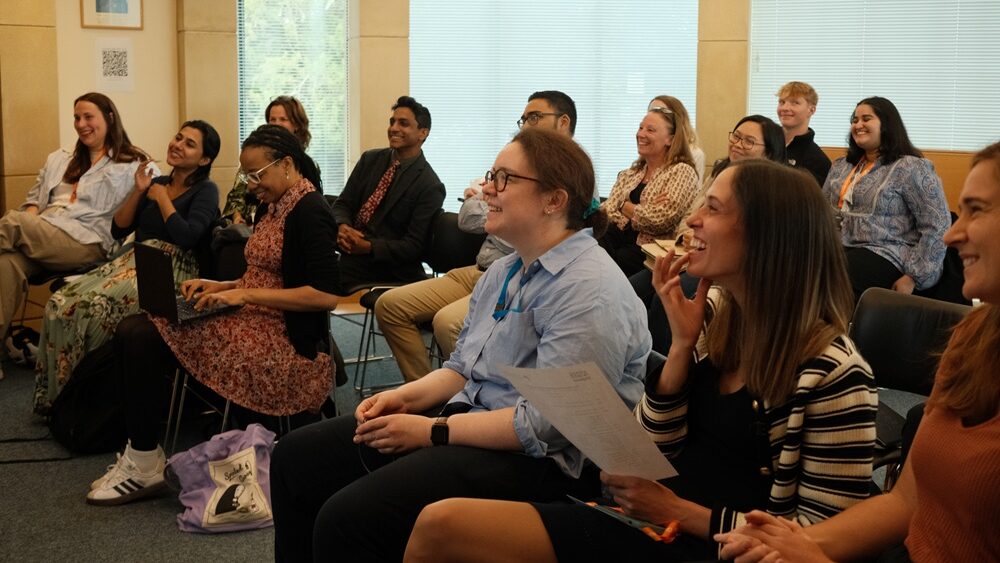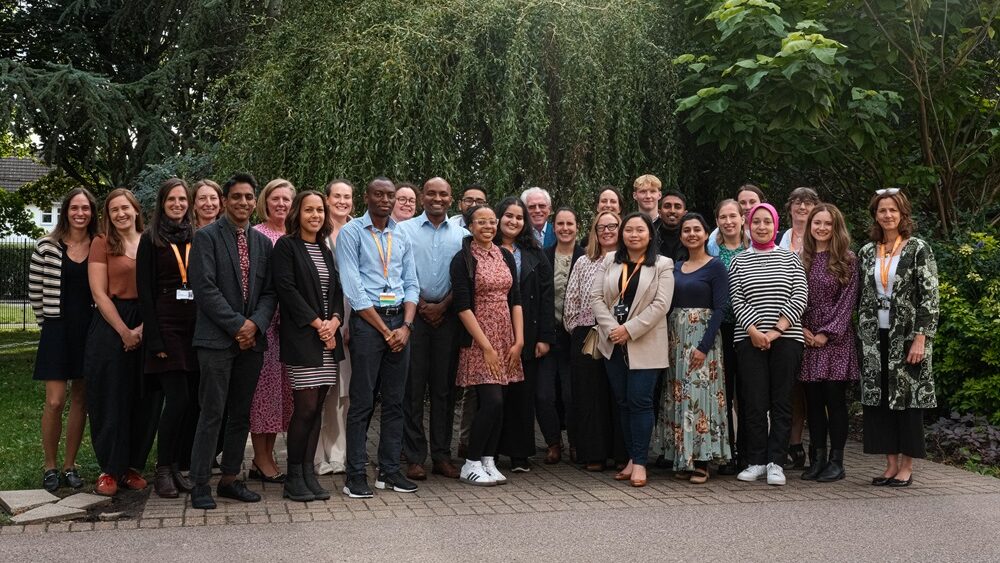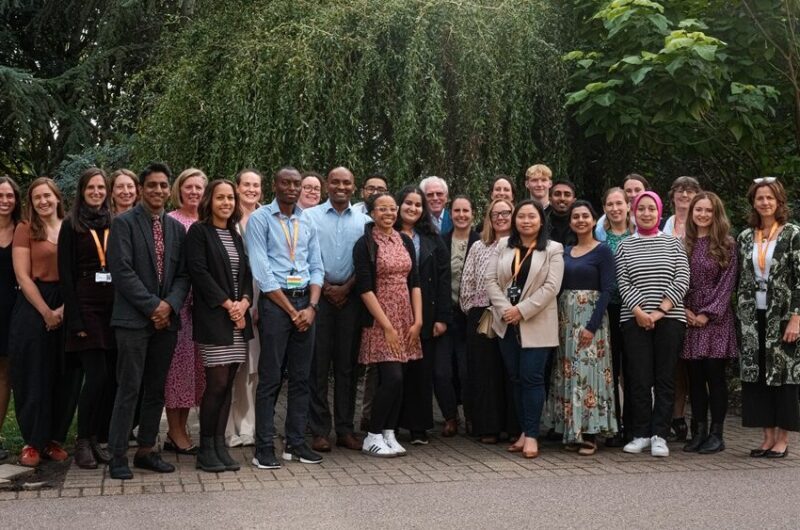By Fiona Douglas
Fiona Douglas is a Senior Resident Doctor training in Substance Misuse Psychiatry at Cambridge University Hospitals NHS Foundation Trust (CUH) and an CGHP East of England Global Health Fellow. Here she explains a mental health education project she’s developing in Kenya and why working at a community level can be an effective approach.
“I have always had a strong interest in global health, and I am incredibly grateful to have the CGHP East of England Global Health Fellowship as an opportunity to allow me to develop experience in healthcare in low-resource settings and work in an area I’m very passionate about.
As part of the CGHP Fellowship, I have been fortunate to receive funding towards an MSc in Health in Humanitarian Crises at the London School of Hygiene and Tropical Medicine, which is allowing me to develop knowledge and understanding of healthcare in low-resource settings, particularly within crisis-affected situations. It also covers topics around global health more generally, including mental health, global health policy and epidemiology. The course also covers vocational areas such as project design and evaluation, and I’m enjoying learning about how health projects can be implemented in a range of different settings, particularly under challenging circumstances such as in conflict and displacement.
I’m really interested in the use of mental health and psychosocial support in low- and middle-income countries (LMICs). I’ve had a systematic review of their use for PTSD symptoms in children accepted for publication, and this is particularly relevant in lower income settings where half the population are often below the age of 20. I’m also interested in substance misuse as a public health challenge in LMICs and I’m currently sub-specialising in addictions psychiatry, which is allowing me to gain more experience in this area.

How task-sharing could improve access to mental health care
My international Fellowship project will explore the use of task-sharing as a strategy for improving access to mental health care in settings where there are few specialist professionals. Task-sharing is the process by which care that is usually provided by specialist trained professionals is shifted to non-specialists. This can include non-specialist medical professionals, but also community health workers and lay members of the community such as teachers. There is a large gap in mental health service provision in many parts of the world and task-sharing is a strategy that seeks to address this.
I am developing a mental health education project based in Kakamega County in Western Kenya. Kenya faces significant challenges in treatment gaps due to the limited number of mental health professionals, including psychiatrists. There are around 120 nationally which works out at about two per million people. In contrast, there are about 200 psychiatrists per million people in the UK and even then, UK mental health services are stretched.
Despite this, Kakamega has a relatively good mental health service provision. The county has a 20-bed specialised psychiatric unit, and the Kakamega County Teaching and Referral Hospital (KCTRH) operates a busy outpatient psychiatric clinic. The region also has weekly mental health outreach programmes, and many sub-county hospitals have psychiatric nurses on staff, ensuring that basic psychiatric care is accessible more locally. However, healthcare provision at a lower level can also play an important role in improving population mental health.
Leveraging community health workers
Community Health Promoters (CHPs) are community health workers linked to dispensaries, which form part of Kenya’s level one health system. These CHPs serve as the first point of contact for patients in the community. The purpose of my project is to provide training to them in mental health literacy and basic mental health care, so they can identify individuals with mental disorders who can then be triaged by dispensaries and, if appropriate, referred for more specialist input. This would enable more people to access treatment before their conditions escalate. Early access to treatment improves outcomes, so this may have a significant impact on mental healthcare provision. The hope is that the programme will also help reduce stigma and begin to improve attitudes toward mental health at the community level.
There are around 200 dispensaries spread across Kakamega County’s 12 sub-counties. As this is a pilot project to establish the feasibility of such an intervention, there are associated logistical and resource constraints. We will start by working with dispensaries in Malava and Navakholo sub-counties and providing staff training at around 15 selected dispensaries. The day and a half training programme is based on the WHO’s Mental Health Gap Action Programme (mhGAP) guidelines and includes an intervention guide developed for task-sharing interventions and interactive training including lectures, role-playing exercises and group discussions.
As well as covering common mental disorders, training will also cover substance misuse which is a significant concern in Kakamega. Approximately 20% of the population is estimated to consume alcohol and around 3% use cannabis, which highlights the need for targeted education and screening around addiction and substance-related disorders.
Navigating the challenges
Although barriers such as limited resources and stigma persist, investing in CHW training and strengthening referral systems can significantly expand access to care. Community ownership of mental health services and ongoing advocacy can ensure long-term sustainability and greater public understanding.
A large proportion of healthcare in Kenya is funded by USAID and consequently financial resources are being diverted to essential services. The impact of the Trump administration’s policies on cutting international aid has been extremely wide ranging globally, and in Kenya this includes vital programmes such as those covering HIV and malaria care. Unfortunately, this means that it has not been possible to identify funding with Kakamega itself. However, our hope is that by demonstrating the benefits of the programme, we will be able to apply for funding locally for subsequent projects.
Ultimately, this project is an opportunity to demonstrate how empowering community-based workers with the right training and tools can lead to more equitable mental health services. Through collaborative, context-sensitive interventions, we can help build a stronger, more inclusive mental health system that meets the needs of all individuals, especially the most vulnerable.”

Find out more about the CGHP East of England Global Health Fellowships or contact us at info@cghp.org.uk
Return to blogs

